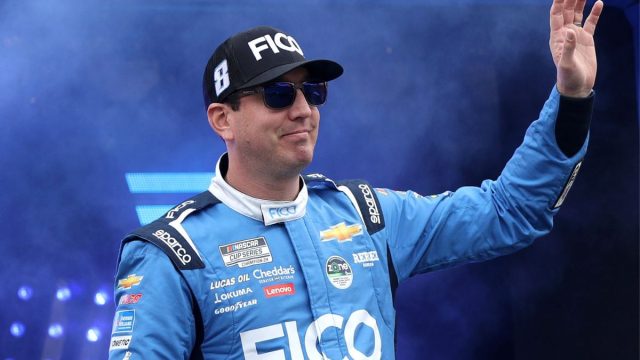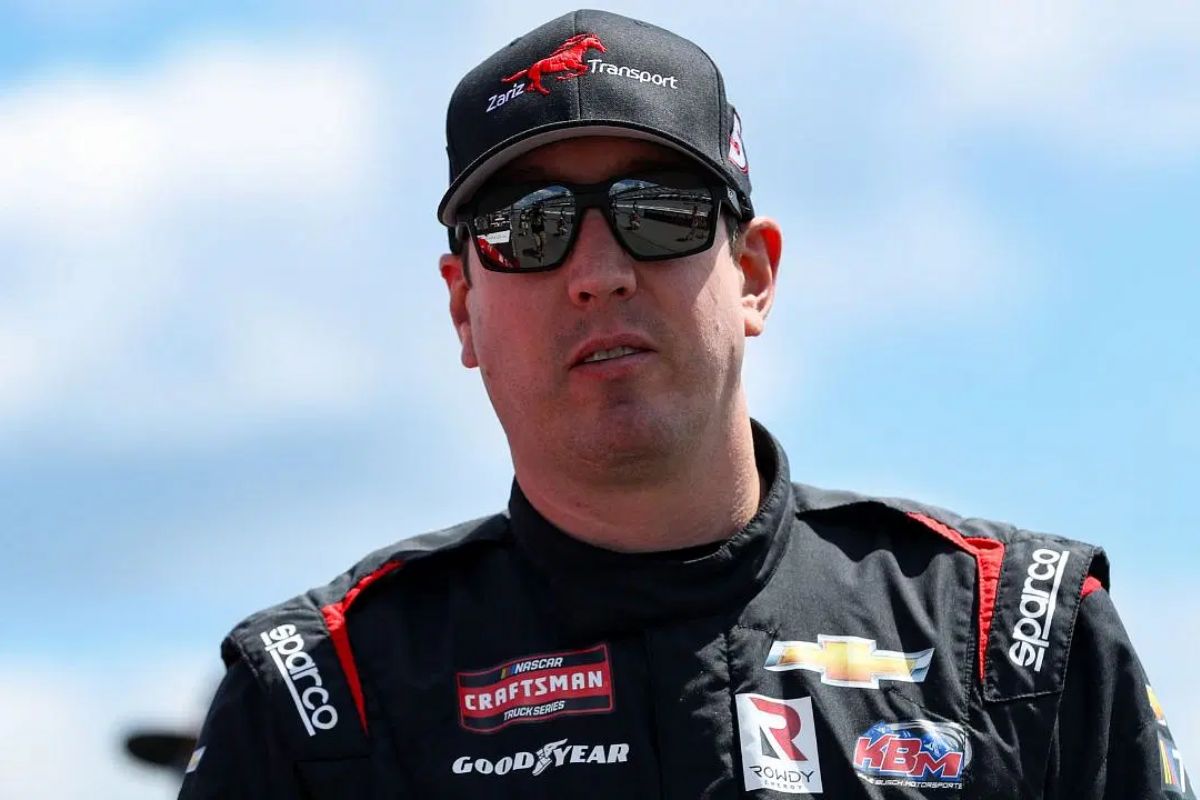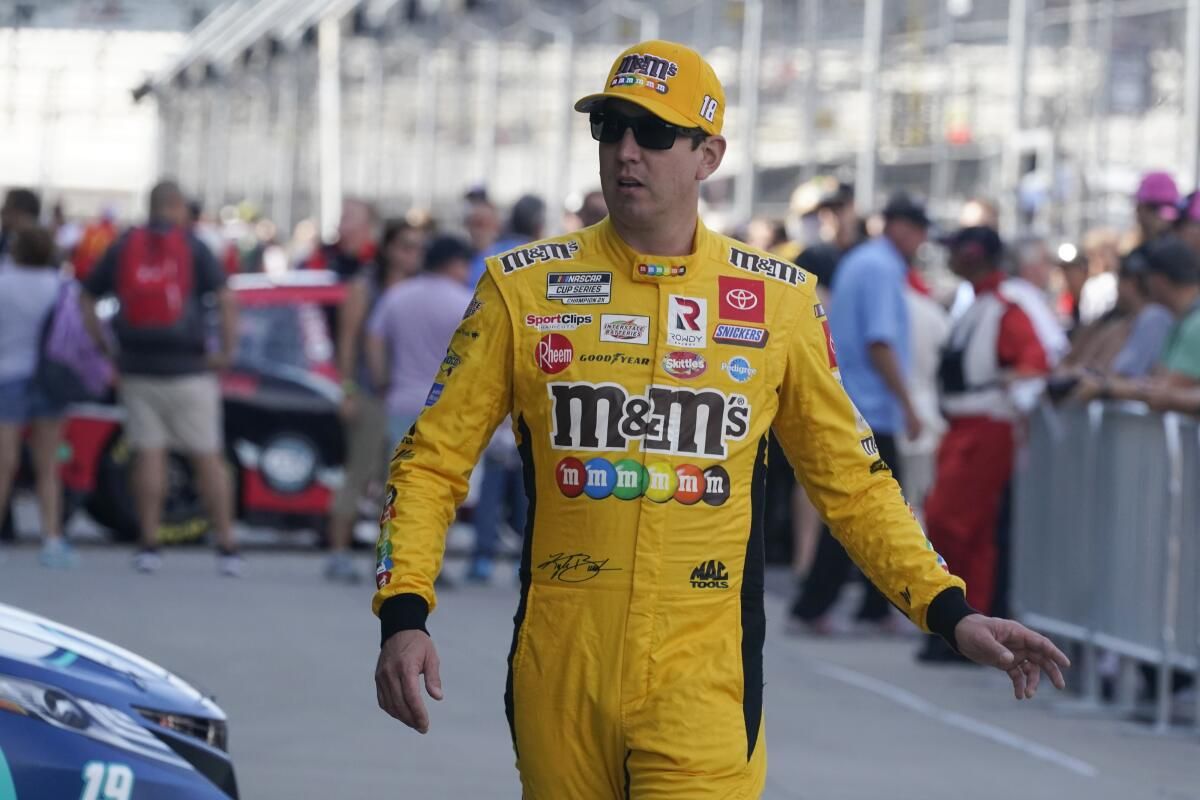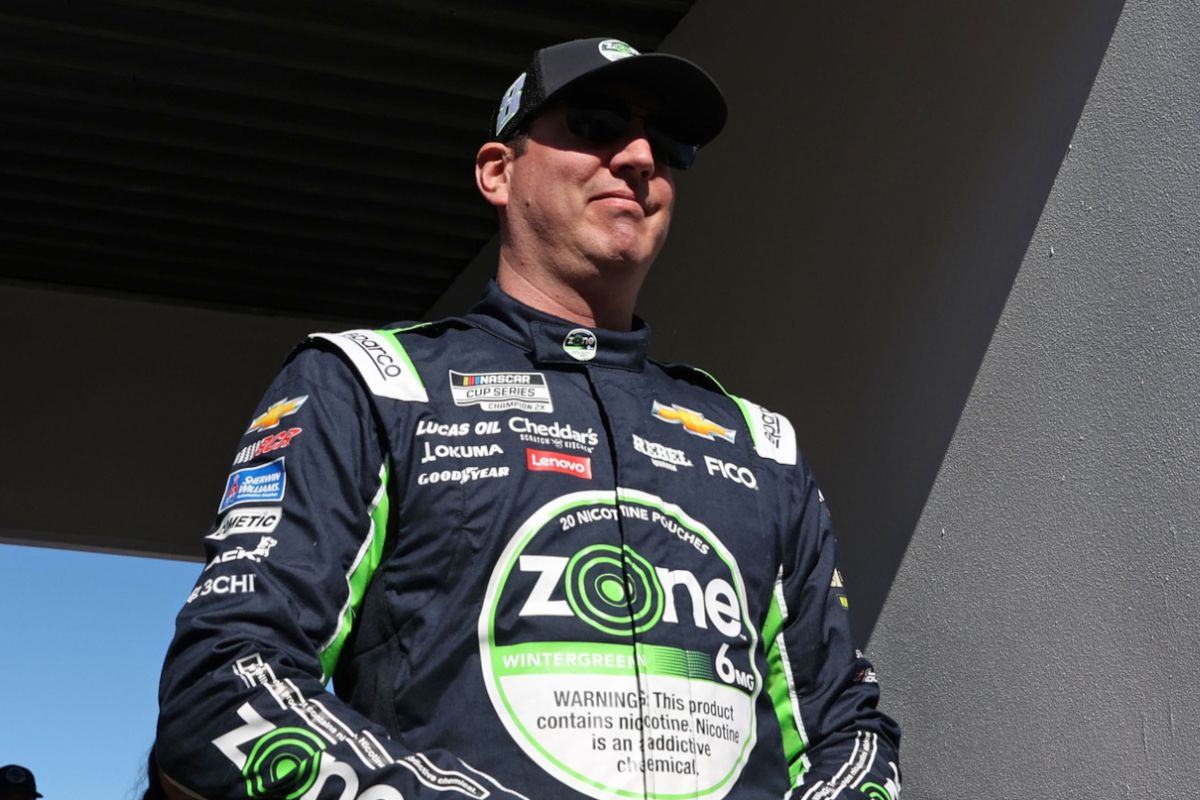Kyle Busch’s Dover Desperation: In analyzing Kyle Busch’s current issue, evidenced by his explicit need for a win at Dover amidst a surprising dip in performance, it becomes important to contextualize his 2024 season within the broader spectrum of his NASCAR career. Busch’s unshaken demeanor, despite recent setbacks, highlights a seasoned racer’s insight into the cyclic nature of sports competitiveness. His tactical expertise and psychological resilience will be tested as he approaches the Dover race, a significant moment that could redefine his season’s trajectory.
Key Takeaways
- Kyle Busch faces a challenging season with only top-ten finishes and a 17th place standing.
- Integration issues with RCR #8 have contributed to his performance struggles.
- Busch has shown resilience by using detailed data analysis to strategize improvements.
- Despite setbacks, he remains optimistic about his chances, particularly at the upcoming Dover race.
Kyle Busch’s Struggles in the 2024 Season
Kyle Busch’s 2024 NASCAR Cup Series campaign has been marked by a notable decline, with only few top-ten finishes and a concerning 17th place standing in the series so far. This downturn is particularly striking given Busch’s past performances and his early season victory in the Truck Series, which displayed his undoubted driving skills and competitive edge.
Analyzing Busch’s race telemetry and pit stop strategies may offer insights. It appears that there are challenges in tire management and fuel strategy that have not been effectively addressed, impacting his ability to maintain peak performance throughout a race. Moreover, the integration with RCR #8 might still be undergoing teething problems, suggesting that both driver and team are yet to find a harmonious balance.
Kyle Busch’s Optimism and Analysis
Despite a challenging season, Busch’s steadfast optimism shines through as he carefully analyzes performance data to strategize for upcoming races. His approach is not merely reactive but deeply analytical, illustrating a profound understanding of the sport’s intricacies. By maintaining a detailed spreadsheet that tracks all points lost by the No. 8 team, whether due to errors within their control or external factors, Busch exemplifies a meticulous and proactive mindset.
Busch’s optimism, amidst the demands of the racing season, is not unfounded but rooted in a strategic examination of empirical data. His ability to remain hopeful and forward-thinking is significant, particularly in a sport as dynamic and unpredictable as NASCAR.
Busch’s Analysis of Season Performance
Reflecting on his season’s challenges, Busch acknowledged the gap between current results and his team’s potential, pinpointing a significant deficit of 89 points as a primary obstacle to better standings.
“It’s definitely not where we want to be, but I’m not shocked. We haven’t scored the finishes that we need. That’s what it boils down to. When you can get finishes, stage (points) the way that you need to then you know you’re going to be alright.”
“We’re 89 points to the negative on that sheet. That’s not winning races, it’s just getting the finishes that we deserve in the races and how we were running at the time when something went wrong. Give me all those points and we’re in a completely different talking zone.”-Busch
It highlights the critical role that stage points and race finishes play in sustaining competitive momentum in the series. His analysis speaks to a broader strategy often employed in racing where securing regular points can oftentimes outweigh the sporadic high of a race win.
Challenges and Opportunities
Busch’s honest evaluation of his season’s performance lays a solid foundation for exploring the specific challenges and opportunities that lie ahead in his quest for improved results. The challenge of limited practice time has been a significant hurdle. The brevity of these 20-minute sessions has restricted Busch’s ability to fine-tune the No. 8 car to its best racing condition. This has possibly been a detriment not just to performance on race days, but also to the strategic development of the vehicle over the season. Detailed, longer sessions would allow for more precise adjustments and a deeper understanding of the car’s response under varied race conditions.
Moreover, Busch’s experience at the Daytona 500 and subsequent races highlights another challenge: the unpredictability of racing dynamics and the critical impact of team coordination and communication. The incident with Ty Gibbs at Talladega is a striking example of how miscommunication can lead to lost opportunities. This points to the need for improved synergy and clarity within the team, which could transform potential setbacks into strategic advantages.
Anticipation for Dover Race
With the season advancing and playoff positions at stake, Busch’s need for a win grows increasingly urgent. His performance at Dover concrete oval track last year, leading the initial laps before a pit road penalty, demonstrates both his potential and pitfalls at this track. It’s evident that his aggressive driving style and his team’s strategy can put him at the front, but maintaining that lead through disciplined pit stops will be vital.
Analyzing his current season, Busch’s decent finishes at Atlanta, COTA, and Phoenix suggest that his racing expertise remains intact despite less than stellar results overall. These performances, characterized by resilience and a knack for staying in the mix, might just be the precursors needed for a strong showing at Dover.
News in Brief: Kyle Busch’s Dover Desperation
Kyle Busch’s approach to the 2024 NASCAR season demonstrates a deep understanding of the complex dynamics within competitive racing. Despite a noticeable decline in performance, his strategic anticipation of the Dover race highlights a crucial turning point in his career.
This moment not only challenges his adaptability and mental resilience but also showcases the intricate interplay of experience, skill, and strategic expertise necessary for overcoming obstacles and achieving success in motorsports.
Our Reader’s Queries
Q. What is Kyle Busch’s car number?
A. As of 2023, Kyle Busch maintains a busy schedule across multiple NASCAR series. He competes full-time in the NASCAR Cup Series, piloting the No. 8 Chevrolet Camaro ZL1 for Richard Childress Racing. Additionally, Busch engages in part-time endeavors, driving the No. 10 Chevrolet Camaro for Kaulig Racing in the NASCAR Xfinity Series.
Q. Who sponsors Kyle Busch?
A. In an exciting development for Kyle Busch’s 2024 season, Zone Nicotine Pouches has joined forces with Rebel Bourbon and Global Industries as announced primary sponsorship partners. This strategic collaboration underscores the growing support for Busch as he embarks on his second season with Richard Childress Racing. With three victories under his belt from the previous season, Busch showcased his prowess on the track, ultimately securing a 14th place finish in the NASCAR Cup Series championship standings.
Q. Why is Kyle Busch called Rowdy?
A. Recent reports have confirmed the closure of Kyle Busch’s energy drink venture, a development that may have been anticipated by the NASCAR driver himself. Busch launched the Rowdy energy drink brand back in 2020, tapping into his own persona with the moniker “Rowdy,” a nod to the iconic “Days of Thunder” character Rowdy Burns. At 38 years old, Busch’s decision to venture into the energy drink market reflected his entrepreneurial spirit and connection to his racing persona.
ALSO READ: Kyle Busch’s Dirt Track Victory: Fans Cheer His Epic Comeback



